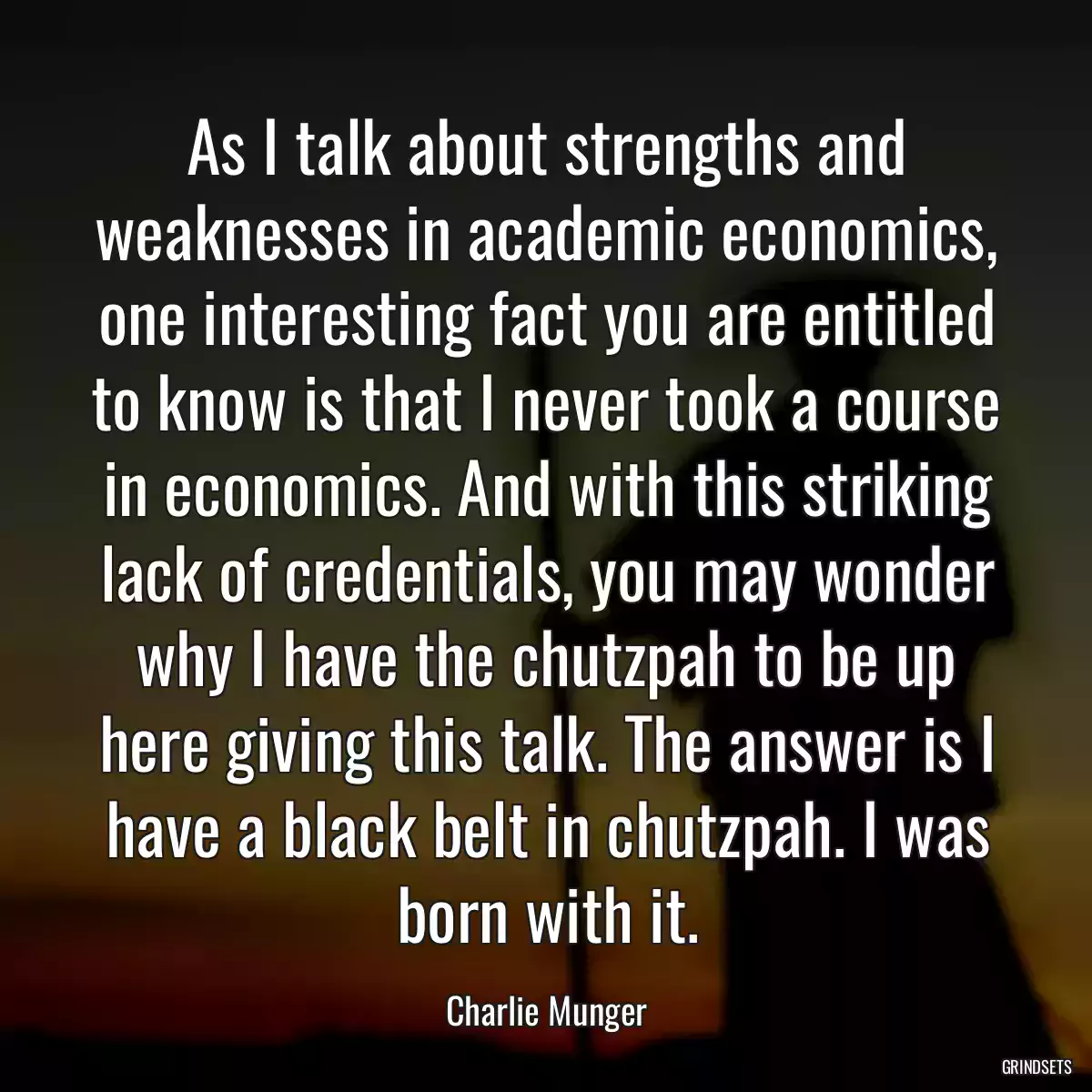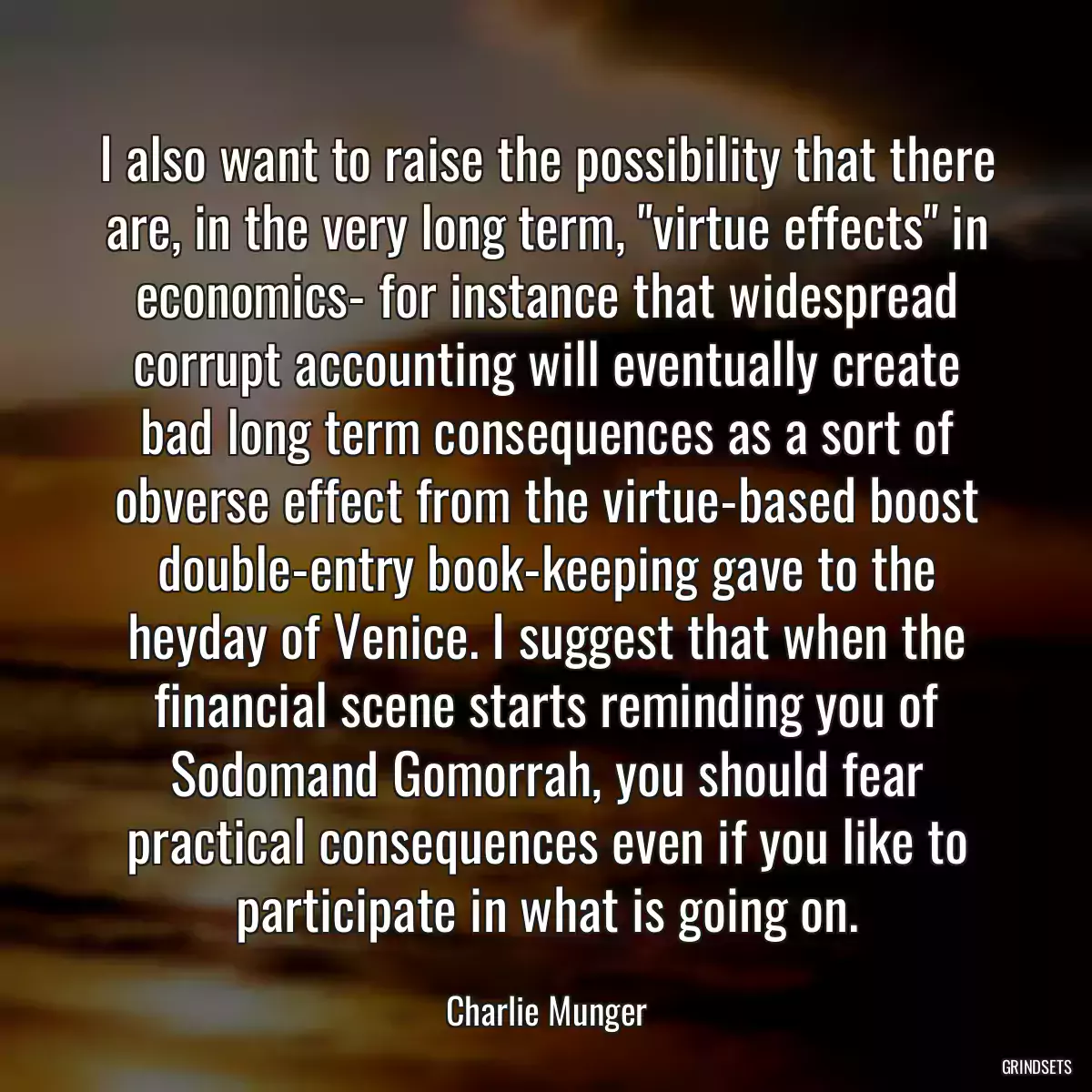
As I talk about strengths and weaknesses in academic economics, one interesting fact you are entitled to know is that I never took a course in economics. And with this striking lack of credentials, you may wonder why I have the chutzpah to be up here giving this talk. The answer is I have a black belt in chutzpah. I was born with it.
![Everyone caved, adopted loose [accounting] standards, and created exotic derivatives linked to theoretical models. As a result, all kinds of earnings, blessed by accountants, are not really being earned. When you reach for the money, it melts away. It was never there. It [accounting for derivatives] is just disgusting. It is a sewer, and if I\'m right, there will be hell to pay in due course. All of you will have to prepare to deal with a blow-up of derivative books.](/fotos/37/37132cd40e8bd0cd4f2aa4099aa59631.webp)
